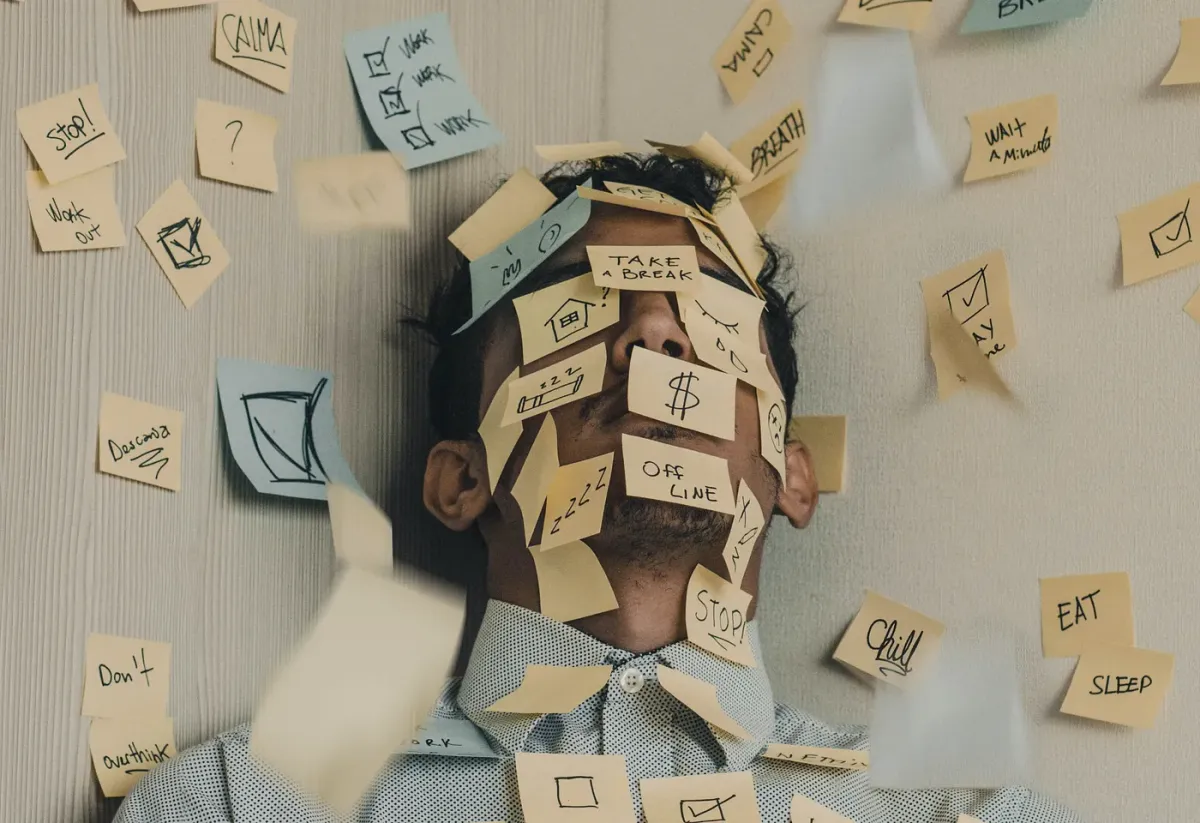Why You Fail to Meet Your Goals and How to Change That in 2025

As the year comes to an end, many of us think about the goals we want to set for the next year. Whether they are big or small, it’s common to fail at achieving them. We’ve been told for a long time that if we want to improve our lives, we need to set better goals. But is this the right way?
Let’s see some examples of these goals:
- This year I am going to read 20 books.
- This year I want to run a half-marathon.
- This year I want to lose 25pounds.
- This year I want to make 100k as an entrepreneur
and the list goes on and on...
Let's understand some things first
What is a goal, and what are the problems with goal setting?
A goal is a specific objective that you may or may not achieve in the future. While goals are good to give you a direction on where you want to go, they have some downsides.
Goals affect your happiness and make you more stressed
A goal creates a mindset of “when I will reach my goal, then I will be happy,” which makes you feel unhappy all the other times since you are locked in an always ‘chasing’ mentality.
Writer James Clear said:
When you’re working toward a goal, you are essentially saying, “I’m not good enough yet, but I will be when I reach my goal.” The problem with this mindset is that you’re teaching yourself to always put happiness and success off until the next milestone is achieved. “Once I reach my goal, then I’ll be happy. Once I achieve my goal, then I’ll be successful.” [4]
Goals can derail your long-term progress
Once you’ve achieved your goal, chances are you will stop working on that. This usually happens because you didn’t set up a process that led you to this goal, which means you can’t scale the things you did in order to meet a same but larger goal.
Goals make us believe we can control our future
There are some things we can control and some other we can’t. This usually happens because external factors can affect our goals. Think of this simple example, I want to read 20 books this year. We can have complete control over that goal since we have to decide how to spend our free time every day.
In cases where we have partial control and we cannot reach our goal, we tend to have negative thoughts about ourselves (’I am not good enough..’) since we already said that goals are also tied to happiness.
As we said, goals tell you where you want to go; they are focused on the future. But how can you ensure that you will reach your goal and you will avoid all those negative feelings?
The answer is Systems.
Systems increase your odds to achieve your goals. A system is a process or a sequence of processes that can lead you toward a desired outcome (your goal).
Writer Adams Scott said:
A system is something you do on a regular basis that increases your odds of happiness in the long run
Think of the goal we discussed earlier, ‘I want to read 20 books per year’. You will maybe end up with 2–3 books completed by the end of the first semester. At that point you will realize that you are too far from the goal you set and you will starting feel stressed and disappointed since you are close to failing your goal. What you should have been doing instead is to build a System that will lead you to this goal. This can be done by systemize a behavior like reading 20 pages of a book per day.
The power of a system is that it can be scaled to your needs. Next year you may want to read 30 books, you can easily do it by revising your system to give you the outcome you want. That’s why you don’t need better goals, you need better systems.
Writer James Clear said:
You do not rise to the level of your goals. You fall to the level of your systems.
Why systems are more important than goals
- Goals create momentary change, while systems create lifelong change.
- Goals delay happiness while systems don’t.
How do I build and revise a System?
You can follow these 3 steps to build an effective system:
- First, you need to decide what you want to achieve.
- You need to choose habit(s) that will help you move toward towhat you want.
- You will need to revise your system when it doesn’t seem to help you move toward your goal.
Let’s see how that works:
If my goal is to lose 24 pounds in a year (step 1), I need to come up with some daily habit(s) that will help me achieve that (step 2). The most important thing to do is to maintain my calories intake. Another habit I should add is to start working out 2-3 times per week. This process will help me achieve my goal. In case I think that is going slower than I need, I can anytime revise my system, lower calories intake, or add more cardio to my workouts, so I can get the results I need and hit my goal.
Last words
Everything is a part of a system, starting with a single ingredient in a recipe to the most advanced instance that exists out there. Next time, while you are thinking about setting up your next goals, try to give more time to explore what you are currently doing and how that should change to lead to where you want to be. Keep in mind that your new daily changes will shape the lifestyle that you need to have in order to become what you want.
We are heading towards the end of this year, which means you can make a fresh start by setting up new year’s goals and start succeeding in more and more things this time.


